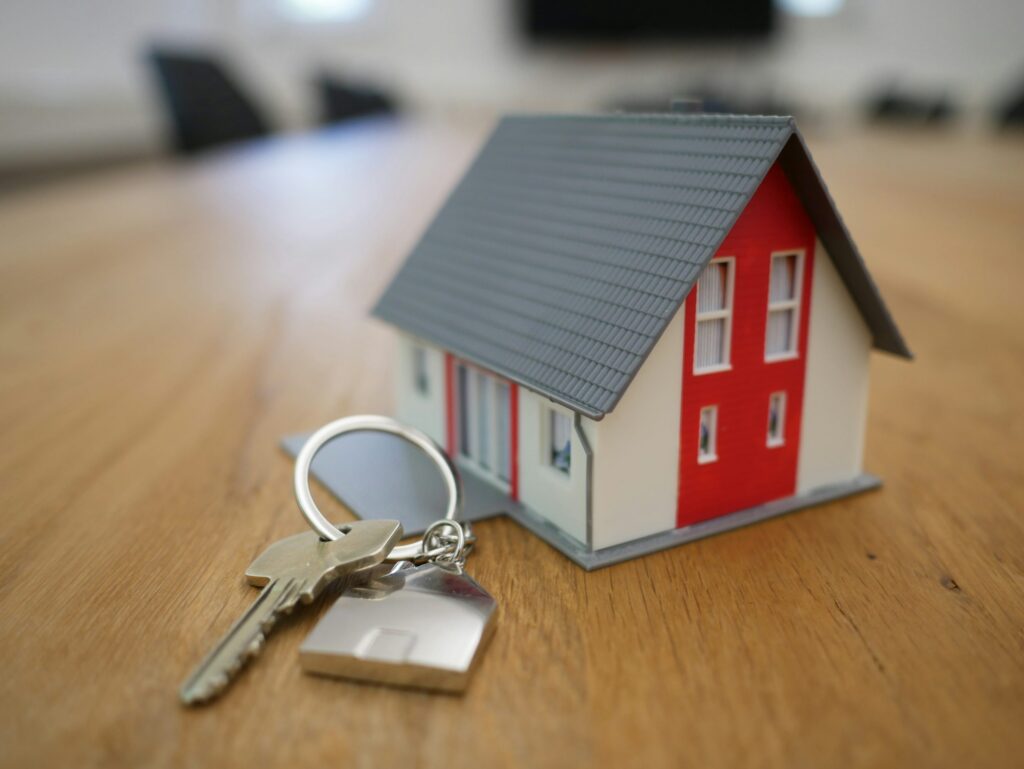
It was a hot Thursday afternoon in March when Mr. Bamidele called me. The first thing he said was, “Dennis, I don’t want any talk about land today. Just tell me: how much will it cost me to build a decent 3-bedroom house in Lagos in 2025?”
He was tired of “shaky” rental homes with leaking roofs and landlords who increased rent every December like it was part of festive tradition. Now in his early 40s, he had managed to secure a piece of land in Ikorodu and was ready to build his dream home—not something lavish, just a functional and beautiful 3-bedroom bungalow where his kids could finally stop changing schools every year.
This is the same question thousands of Lagosians are asking today. So let’s break it down, using realistic data, on-the-ground insights, and 2025 market estimates.
1. The First Cost: Land Might Be Cheaper Than You Think
Before you even talk about cement and blocks, there’s land. And no, you don’t have to buy land in Lekki Phase 1 or Magodo for this dream to come true.
In 2025, land in areas like Ikorodu, Badagry, Epe, and parts of Ibeju-Lekki still go for between ₦5 million and ₦35 million for a plot, depending on location, documentation, and development level. If you’re lucky to already own land like Mr. Bamidele, you’re a step ahead. But for those yet to buy, this cost is still a major part of the budget and shouldn’t be overlooked.
2. Building Plan and Approvals: The Hidden but Necessary Fees
After securing land, you’ll need a building plan, architectural drawings, structural designs, and official approvals. This is Lagos—we follow procedure here (or you risk demolition notices).
As of 2025, getting everything sorted—from engaging a certified architect to approval from the Lagos State Physical Planning Permit Authority—can cost between ₦400,000 and ₦800,000. If you’re building in government-regulated estates or areas under tight scrutiny, it might be slightly higher.
3. Foundation Work: Where the Bulk Begins
Here’s the truth: your foundation eats a lot of your budget, especially if the land is waterlogged or marshy.
For a typical dry land in the mainland, the cost of the foundation—digging, filling, blinding, German floor, etc.—can go from ₦1.5 million to ₦3 million. But if you’re building in coastal or swampy areas (hello, Lekki), be ready for pile foundations or raft slabs which can increase costs to ₦5 million or more.
4. Blockwork and Wall Construction: Watching Your House Rise
This is the phase where neighbors finally start greeting you differently. The blocks come in, walls go up, and you start seeing rooms take shape.
The cost of blockwork in 2025 depends on whether you’re using 6-inch or 9-inch blocks. On average, building the walls of a 3-bedroom house from DPC to roof level can cost around ₦2.5 million to ₦4 million. The price of one quality block currently hovers around ₦650 to ₦700.
5. Roofing: Protection and Prestige
Roofing is a make-or-break moment. Some people go all out with Gerard roofs or aluminum long-span sheets; others keep it simple with stone-coated or basic aluminum.
In 2025, roofing a 3-bedroom house (including woodwork, nails, ceiling frame, and labor) can cost between ₦2 million and ₦4.5 million, depending on the materials chosen. It’s not a place to cut corners—Lagos rain has no pity.
6. Doors, Windows, and External Fittings: The Beauty and Security Blend
At this stage, you start to feel like you’re almost done. But don’t let aesthetics deceive you—quality doors and windows are no joke.
A complete set of windows (aluminum or sliding glass) and doors (security, wooden, or metal) can set you back ₦1.2 million to ₦2.5 million. The trend in 2025 shows a preference for minimalist security doors—strong but not too flashy.
7. Plumbing and Electrical Work: Functionality Over Fancy
From kitchen pipes to bathroom water heaters, and from light fittings to sockets, this is the phase where the real infrastructure gets installed. This is not the place to use unlicensed artisans who mix up wires like spaghetti.
On average, both plumbing and electrical works combined for a 3-bedroom home will cost you about ₦1.5 million to ₦3 million, depending on the sophistication of the fittings and the skill level of your workers.
8. Finishing and Interior Touches: Where It All Comes Together
Now the house looks like a house, but it still needs to “shine.”
Tiling, screeding, painting, kitchen cabinetry, bathroom fixtures, and internal doors fall under finishing. For a decent job in 2025, finishing a 3-bedroom house can cost between ₦3 million and ₦6 million. Fancy ceiling work or extra POP designs will push the price higher. But if you’re on a tighter budget, smooth screeding and simple paint can still look great.
9. External Works: Don’t Forget the Outside
Driveways, fencing, gates, soakaway, septic tanks, drainage—it all adds up.
In Lagos, especially in the rainy season, poor external planning leads to flooding. To do this right in 2025, budget about ₦1.5 million to ₦3 million. It’s often one of the last expenses homeowners think about, yet one of the most essential.
10. So, What’s the Total Cost of Building a 3-Bedroom House in Lagos (2025 Estimates)?
Putting everything together—from foundation to roofing to finishing—the Cost of Building a 3-Bedroom House in Lagos (2025 Estimates) ranges from ₦18 million to ₦35 million, depending on your taste, location, and how much you’re willing to supervise the process yourself.
Mr. Bamidele? He ended up spending about ₦22 million in Ikorodu by buying materials in batches and supervising every stage like a hawk. No shame in that—after all, it’s not just a house, it’s a dream.
Final Thoughts
Building a 3-bedroom home in Lagos isn’t just about blocks and cement—it’s about vision, planning, patience, and making peace with Lagos prices. You can go modest or go premium, but either way, knowing what to expect prepares you mentally and financially.
If you’re ready to build or you’re just thinking ahead, keep this guide close. And remember, you don’t have to break the bank—just plan smartly.
If you need someone who knows the corners, loopholes, and realities of Lagos building—na me be that.
